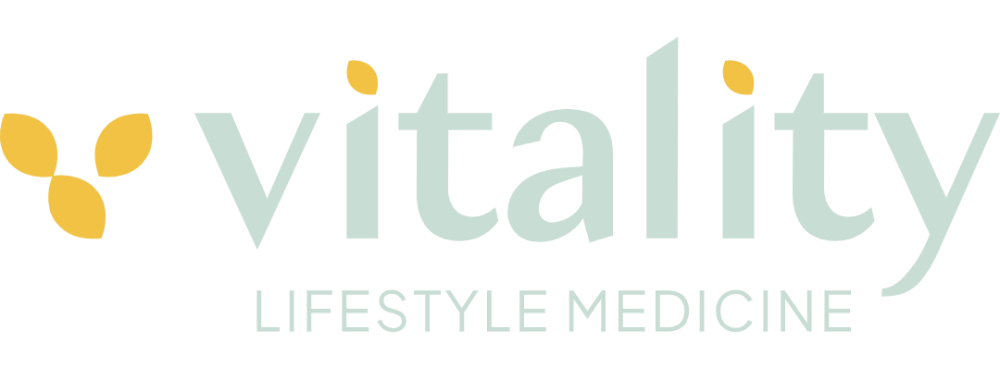How to Find Reliable Health Information in a Noisy Online World
Nov 03, 2025
We live in a time where more health information is available than ever before. That sounds like a good thing, until you try to make sense of it. One quick Google search for “how to improve energy” or “what to eat for menopause” and suddenly you’re knee-deep in miracle powders, conflicting advice, and influencers who seem to have all the answers (and a discount code to go with them).
As a GP, I get it. Getting an appointment can be hard, and it’s tempting to turn to the internet for quick guidance. But there’s a big difference between good information and good marketing. And lately, the marketing has been winning.
Why this matters
When it comes to your health, misinformation isn’t just confusing; it can be harmful. Every week, I meet women who’ve spent money, time, and energy chasing advice from self-proclaimed experts who promise the world but deliver very little. Often, their advice sounds persuasive because it plays on fear, frustration, or hope, three things most of us feel when we’re not feeling our best. That’s why it’s worth understanding how real science works and how to tell if information is trustworthy.
What does evidence-based actually mean
You might hear the term “evidence-based” thrown around a lot, but what does it actually mean?
It just means that an idea or treatment has been tested in a structured, transparent way using the scientific method.
Here’s the basic idea:
-
Start with a question. Does this supplement improve energy?
-
Make a hypothesis. I think it might.
-
Test it. Design a fair experiment where some people take the supplement and others don’t, and measure what happens.
-
Analyse the results. Did it really help? Were there side effects?
- Publish it. So others can critique, repeat, and build on the findings.
This process isn’t perfect because science evolves as new evidence comes to light, but it’s still the most reliable system we have for figuring out what truly works. In contrast, many online “health hacks” skip all these steps. They might rely on one person’s story, a cherry-picked study, or a “doctor” who’s selling the solution themselves. Or the ol’ “I did my own research” guru.
Qualifications and accountability matter
There’s another important difference between qualified health professionals and those operating outside regulated systems: accountability.
Doctors, pharmacists, dietitians, and other registered practitioners are governed by strict professional standards. We’re required to complete years of accredited training, maintain ongoing continuing professional development (CPD), and regularly demonstrate that our skills and knowledge are up to date. If we make a mistake that harms you, we’re legally and professionally liable — and you have formal avenues for complaint and compensation.
Practitioners who aren’t governed by a regulatory body don’t have that same accountability. They can make bold claims, sell unproven treatments, or spread misinformation without facing any real consequences. That doesn’t mean everyone online is acting in bad faith — but it does mean you need to be discerning about whose advice you trust.
The Pub Test for Health Advice
Here’s a simple framework you can use to check if a piece of health information passes the pub test — meaning, if you explained it to a sensible friend over a drink, would it sound credible?
-
Who’s talking?
Do they have recognised qualifications or experience in the field? Are they transparent about who they are and what they do? -
What’s their motive?
Are they sharing information to educate or to sell? A product link isn’t necessarily bad, but it should raise your awareness. -
Where’s the evidence?
Can they point to reputable sources like peer-reviewed journals, government health sites, or professional guidelines, or are they relying on anecdotes and testimonials? -
Is it too simple?
Health is complex. Be cautious of anyone claiming to “balance hormones in three days” or “lose weight by eating only chocolate” If it sounds too good to be true, it probably is. -
Can others verify it?
Reliable science can be tested and repeated by independent researchers. Misinformation often falls apart the moment you look for backup sources.
Where to look instead
For credible, evidence-based information, start with:
-
Healthdirect Australia (www.healthdirect.gov.au)
-
Google Scholar (the nerdy version of your usual Google)
-
Your friendly local GP
-
The Royal Australian College of General Practitioners (www.racgp.org.au)
-
Government health departments and university websites
The internet can be a wonderful tool — or a minefield. The trick is knowing which voices deserve your attention. So next time you stumble on a shiny new health promise, take a breath, check the source, and ask yourself one question:
If it sounds too good to be true… it probably is.

